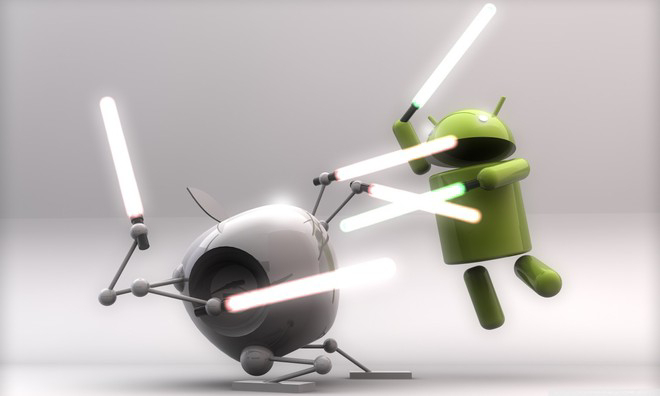Introduction:
In today's fast-paced world, smartphones have become an indispensable part of our lives. When it comes to choosing the right smartphone, the Android vs iPhone debate often takes center stage. With both platforms boasting their unique strengths and features, it's important to understand the key differences and consider your personal preferences before making a decision. In this blog, we'll explore the pros and cons of Android and iPhone, helping you make an informed choice.
1. Customization and User Interface:
One of the standout features of Android is its customization options. Android users have the freedom to personalize their device's home screen, install custom launchers, and tweak system settings to their heart's content. This level of flexibility appeals to those who crave a unique and personalized smartphone experience. On the other hand, iPhone's user interface is known for its streamlined and consistent design, providing a more user-friendly and intuitive experience, especially for those who prefer simplicity.
2. Hardware Diversity and Design:
Android offers a wide range of smartphones manufactured by various companies, catering to diverse preferences, budgets, and design aesthetics. Whether you're looking for a sleek flagship device or an affordable budget-friendly option, the Android market has something for everyone. On the contrary, Apple's iPhone lineup is known for its premium build quality, elegant design, and attention to detail. If you value a cohesive and premium look and feel, the iPhone may be the way to go.
3. Software Updates and App Ecosystem:
Apple is renowned for its timely software updates, ensuring that iPhones receive the latest features, bug fixes, and security patches consistently. This unified approach to updates provides peace of mind to users, guaranteeing a secure and up-to-date experience. Android updates, however, can be more fragmented due to the involvement of device manufacturers and carriers. Nonetheless, Google has been working on improving this situation with initiatives like Project Treble, aiming to streamline the update process.
When it comes to the app ecosystem, both Android and iPhone have a wide array of applications available. The Apple App Store is known for its curated selection of high-quality apps, while the Google Play Store offers a larger quantity and more diverse range of apps. Depending on your preferences, you can choose between the strict curation of Apple or the openness of Android.
4. Integration and Ecosystem:
If you already own other Apple devices like Macs, iPads, or Apple Watches, opting for an iPhone provides a seamless integration experience. Apple's ecosystem allows for easy synchronization of data, files, and services across multiple devices, providing a cohesive user experience. On the other hand, Android devices offer better compatibility with non-Apple devices and services, granting users greater flexibility in terms of integration.
5. Price Range:
When it comes to price, Android offers a wide range of options to suit various budgets. From budget-friendly devices to flagship smartphones, there is an Android phone for everyone. On the contrary, iPhones tend to be more expensive overall, with Apple primarily focusing on premium devices. However, Apple also offers older iPhone models at lower price points, providing more affordability options for those who still want the Apple experience.
Conclusion:
Choosing between Android and iPhone is a matter of personal preference and individual needs. Android offers customization, hardware diversity, and affordability, while iPhone provides a streamlined user experience, regular updates, and a cohesive ecosystem. Consider your priorities, preferences, and budget to determine which platform aligns best with your requirements. At the end of the day, both Android and iPhone have their own unique advantages, ensuring that there's a perfect smartphone out there for each individual.


